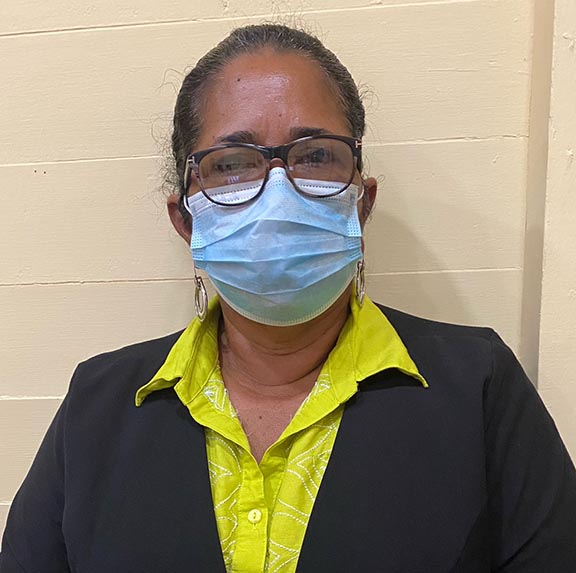With communities on the Pomeroon River, Essequibo, now more prone to flooding, the regional administration has undertaken a massive empoldering and revetment project in a bid to prevent farms from being inundated and at the same time working to reduce pollution of the waterway, Regional Chairman Vilma Da Silva says.
Empoldering measures are being undertaken in communities in both the lower and upper Pomeroon with excavators deployed to create block drainage, heighten river embankments and secure revetments.
However, she noted that at this time the region has been supporting small farmers who are unable to pay for excavators to empolder their farms. And in some cases she has encouraged these small farmers to form themselves into groups and engage in block drainage. These measures, she related, have been helpful to many farmers.
According to Da Silva, the region has several proposals that are being reviewed to address flooding in the long term. She did not disclose what those proposals entail.
After days of heavy rainfall last week, flooding returned to farming communities on the Pomeroon, leaving farmers fearful of another round of massive losses.
However, the Regional Chairman noted that water from the waterlogged farms have been receding and it is likely the farmers will be able to save their crops.
Residents in Jacklow, Abrams Creek, Dredge Creek and St Monica have been affected by the flooding.
Major flooding last year also hit farmers hard and many are still trying to recover from that episode. Most of them had received cash relief from the Ministry of Agriculture and had re-invested the monies into their farms.
Former Assistant Director of Public Prosecutions Judith Gildharie in a letter to Stabroek News on Tuesday highlighted the need for sustainable solutions to aid farmers.
“Farmers need long-term, sustainable solutions now! The experts need to find these solutions quickly and then the government can find the funding necessary to implement them,” she had written.
She pointed out that farmers depend on what they grow to survive and constant flooding and decimation of their crops leave them frustrated, afraid, insecure, and incessantly worried about providing for their families.
Gildharie remarked that “…some engineers had gone to the area with the aim of dredging the estuary and I recall them telling my parents that it was a difficult task attributable primarily to the fact that the river bed had apparently become so hardened, “like a cement floor” caused by the countless coconut husks that had been thrown into the river and which had ultimately settled at the bottom.”
Da Silva, while acknowledging that this is a fact, said that they have been working along with the Environmental Protection Agency to educate farmers and producers of coconut products on the dangers of coconut pollution.
She stated that while this is a problem, the region is currently brainstorming ideas and working with government to find solutions to combat coconut waste.
Deputy Chairman Humace Oudit last week disclosed that the region’s flood response team has been conducting assessments at various flood-affected communities on the coastland and in the Pomeroon River.
Last December, these communities among others inhabited by over 2,000 persons faced flooding for a second time in 2021.
Da Silva described the situation as “sad,” alluding to the fact that farmers were re-entering their fields after the flooding in May.
Farmlands and homes in the Pomeroon River in May last year had been covered in floodwaters. Water levels in the region climbed to unexpected heights and caused major disruption to livelihoods.
The floods had been described as the worst in approximately four decades and for most of the villagers it was the first time they had had such an experience. In Karawab, water levels were close to 14 feet high, and villagers said that they were surviving on hampers distributed by the government.
Communities like Siriki, Karawab and others in the Upper Pomeroon, and Akawini Creek in the Lower Pomeroon were amongst the hardest hit by the flooding.
Former Regional Executive Officer of Region Two (Pomeroon/Supenaam), Devanand Ramdatt, had said “We’ve never seen anything like this before. The rate at which the entire Pomeroon was flooded, is something that even the elderly people of Pomeroon are also saying that they’ve never seen anything like this before. Apart from the Pomeroon, two Amerindian communities, Kabakaburi and St. Monica… also received hampers.”
During President Irfaan Ali’s visit to the flood-hit communities, he had promised “to do everything to secure back your livelihood. We are going to do everything to get you back to the farmland; we are going to do everything to help back the household.”






